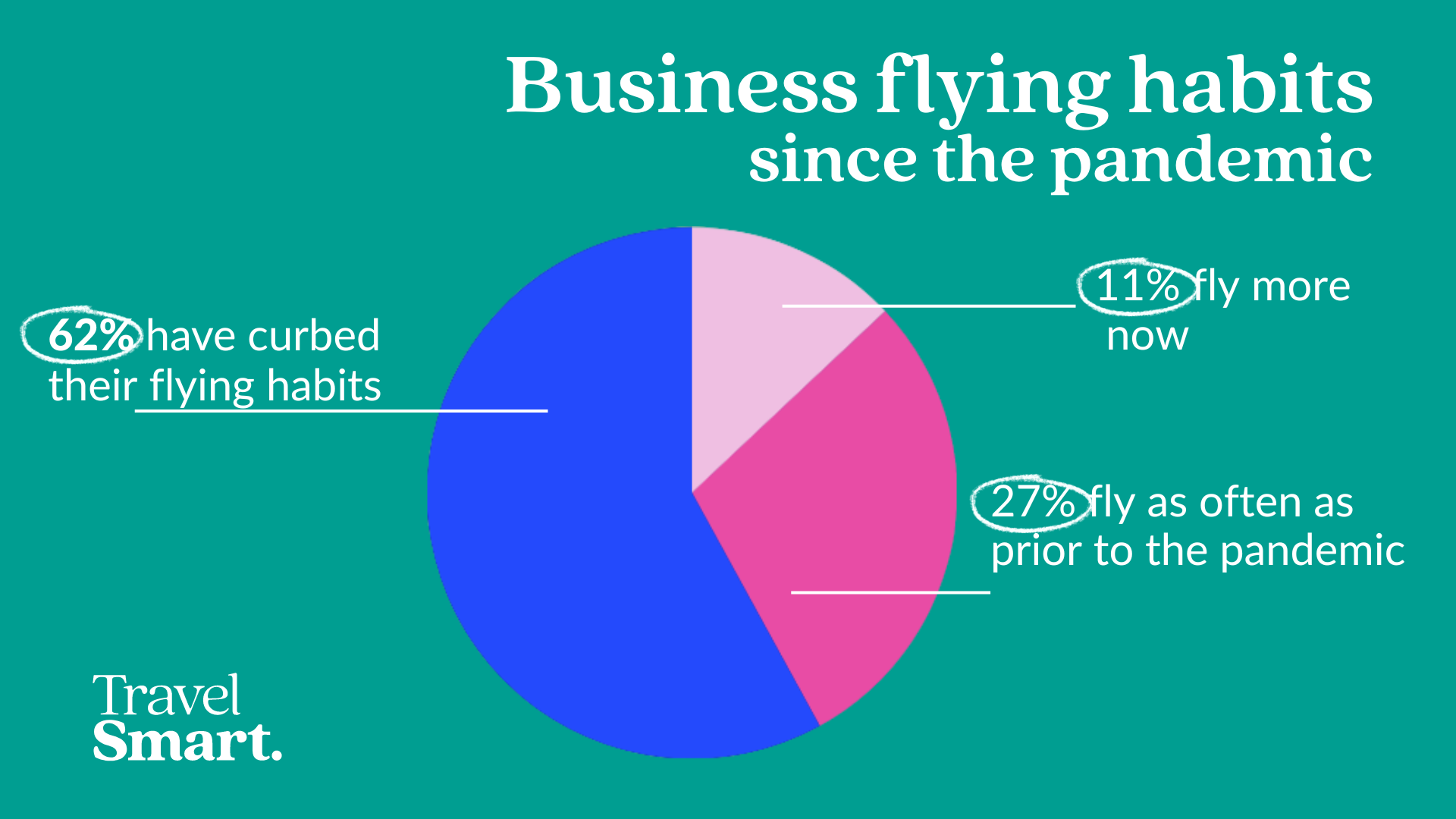77% of corporate employees believe that a business has an important role to play in the fight against climate change. In a poll of 2,506 employees across the United States (U.S.), the United Kingdom (U.K.), France, Germany and Spain, an overwhelming majority of employees surveyed say that their employer should act in the fight against global warming. To qualify for the survey, respondents had to be employed full-time at an organization with at least 50 employees and be between ages 18-74.
While most respondents are willing to make changes to their travel patterns for sustainability and also believe they have an important role in shaping their company’s travel policies, even more believe businesses must set corporate flying reduction targets. 74% of employees in this survey believe that to reduce levels of corporate flying, a business must set targets and include travel policies. The survey also finds that nearly three-quarters of employees believe that an important factor for reducing a business’s carbon footprint is curbing levels of corporate flying. Results across all European countries confirm this.
“Corporate flying habits have changed and employees want a new normal where businesses take responsibility for reducing their share of emissions,” said Denise Auclair, corporate travel campaign manager at Transport & Environment. “Change will happen with clear targets and policies that align with employees’ expectations. This can only help businesses in the current race to recruit and retain top talent”.
The survey comes at a time when there is a growing sense that lower levels of business flying are here to stay. Of those who report flying for work currently or before the pandemic [1], 62% say they have curbed their flying habits compared to before COVID-19. Only 27% say that they fly as often as they did prior to the pandemic, with 11% saying they are now flying more.

The pandemic has shown the ease with which business travelers can reduce corporate flying, turning to expanded choice in other low-carbon alternatives. When asked their preference for how to reduce the environmental impact of business air travel, business travelers in this survey were most likely to say they prefer virtual collaboration technologies (53% of respondents). Less frequent flying (36%) and other means of transport (32%) received around a third of intentions.
The shift toward collaborating remotely is predicted to have a great impact on the return of internal meetings [2]. A large majority of business travelers in this survey (72%) say that they are willing to take fewer business flights for internal meetings in order to reduce their environmental impact. 67% of business travelers in this survey report they are willing to plan more local meetings than global meetings, and therefore potentially avoiding long-haul flights.
“Employees understand the climate impact of long-haul flying and are willing to curb their travel. But they expect top management to lead by example and set ambitious business travel reduction targets. And there has never been a better time, just as COP commences. Corporate leaders who claim to care about the climate should first examine their own flying habits, and seize the moment to pledge to keep their company’s air travel to under 50% of pre-pandemic levels, as a key measure to cut corporate emissions”, concluded Denise Auclair.
Download the topline results by Ipsos
Note to editors
The survey was conducted online by Ipsos, using a sample of 2,506 adults in five countries – U.S., U.K., France, Germany and Spain. To qualify for the survey, respondents had to be employed full-time at an organization with at least 50 employees and be between ages 18-74. The sample of employees was further broken down to reflect business travelers only. Business travelers in this study refers to those that say they flew for work before COVID or currently fly for work. The sample of business travelers was 1279 people. Fieldwork was undertaken between 6 – 10 October 2022. Demographic weights were applied at the country level. The poll has a credibility interval of plus or minus 2.4 percentage points for all respondents. The poll also has a credibility interval of plus or minus 3.4 percentage points business travelers.
[1] The sample of employees was further broken down to reflect business travelers only. Business travelers in this study refers to those that say they flew for work before COVID or currently fly for work. The sample of business travelers was 1279 people, across the U.K., U.S., France, Germany and Spain.
[2] https://www2.deloitte.com/us/en/insights/focus/transportation/future-of-business-travel-post-covid.html